Wellness tips: What doctors would tell their younger selves about health
Cherish friendships, prioritize exercise and self-care, and sleep more
We asked doctors from throughout The Ohio State University’s health sciences what they’ve learned since graduating from their programs and building their careers in medicine.
From psychiatrists to allergists to eye doctors and dentists, these health experts’ answers reveal not just what they’ve seen in their practices and share with the public, but also what they wish they could tell younger versions of themselves.
Some answers have been edited for length and clarity.
Self-care isn’t selfish

Take care of yourself first. I like to think of this as applying the wisdom of flight attendants to everyday life: “Put on your own oxygen mask before helping others.” Self-care is essential. It is the only way you will have the focus and strength to take care of others.
— Carol R. Bradford, MD, MS, dean of The Ohio State University College of Medicine and vice president for Health Sciences at The Ohio State University Wexner Medical Center.
Making time for your own self-care isn’t selfish, it’s essential to your well-being and happiness.
— Kristine Dilley, RDN, registered dietitian at The Ohio State University Wexner Medical Center
Take time for self-care. It actually ends up adding to your productivity and lessens burnout.
— Julie Teater, MD, psychiatrist and medical director for Addiction Medicine at The Ohio State University Wexner Medical Center
Self-care is not selfish — it is an act of self-preservation. In order to take the best care of our patients, we must be healthy, in body, mind and spirit. Hurt people hurt people. To do no harm and be truly guided by the Hippocratic Oath, we must make time for self-care. Rest doesn’t need to be earned and shouldn’t be viewed as a reward. It is essential.
— Kara Wada, MD, an allergy specialist at The Ohio State University Wexner Medical Center and an associate professor at The Ohio State University College of Medicine
Realize the importance of your mental health, men especially. It may seem to be selfish to take time out for yourself, but it will strengthen your relationships with those closest to you.
— Preston Stoller, PT, a physical therapist at The Ohio State University Wexner Medical Center
Worry less, and avoid seeking perfection
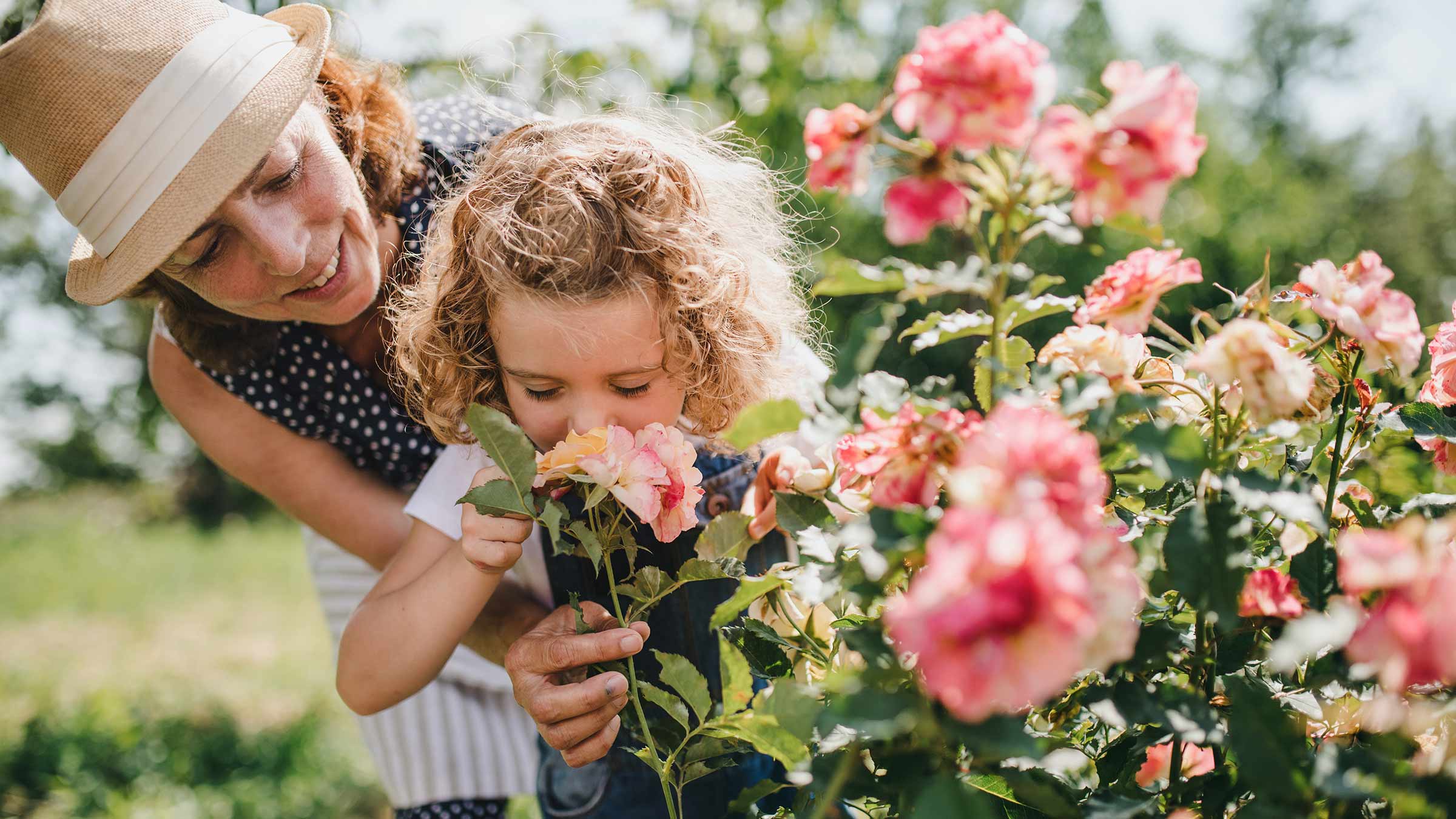
Take time every once and a while to stop and smell the roses.
— Ashley Subler, MD, a psychiatrist at The Ohio State University Wexner Medical Center and an assistant professor of Psychiatry and Behavioral Health at The Ohio State University College of Medicine
Take on LESS stress — you will feel better. Sit LESS. Assume LESS pressure. Create MORE time in nature, and compassion for self and others.
— Maryanna Klatt, PhD, director of Integrative Medicine at The Ohio State University Wexner Medical Center and a clinical professor in the Department of Family and Community Medicine at The Ohio State University College of Medicine
My biggest advice to my younger self is to not let perfect be the enemy of the good!
— Monica Kraft, MD, an allergist/immunologist at The Ohio State University Wexner Medical Center and an assistant professor of otolaryngology at The Ohio State University College of Medicine
Make time to enjoy life. All of it. The days may be long, but the years fly by! Always make time to recharge and spend quality time with your family and friends. Enjoy every moment of the journey that is your life.
Manage your stress in positive ways. Establishing healthy habits early on will help you deal with the stressors of daily life. A healthy diet, regular exercise and plentiful sleep are crucial, but you should also look for a variety of other coping strategies. For example, engage in hobbies that bring you joy, like tennis, or take a “holiday” from checking emails once a week. And always remember to practice gratitude. Every day, take time to be grateful and “count your blessings” — focusing on those good things will help decrease your levels of stress and anxiety.
— Carol R. Bradford, MD, MS, dean of The Ohio State University College of Medicine and vice president for Health Sciences at The Ohio State University Wexner Medical Center
Learn to take conflicts and issues at work in stride. Analyze the issue thoroughly, and craft a solution whenever possible. Don’t overly ruminate. When a solution does not present itself quickly, take the time and have the patience to wait for it.
— Karla Zadnik, OD, PhD, dean and the Glenn A. Fry Professor of Optometry and Physiological Optics at The Ohio State University College of Optometry
Give yourself permission to not be perfect. Failure is often a precursor to success, and the only way to grow is to allow yourself to be challenged — which you can't do if you are too busy only doing things you know you are able to do!
— Ashley Larrimore, MD, an emergency medicine physician at The Ohio State University Wexner Medical Center and an assistant professor of emergency medicine at The Ohio State University College of Medicine
My main tip would be to tell my younger self that the only constant is that things are always changing.
— Ariane Park, MD, MPH, a researcher and associate professor in the Department of Neurology at The Ohio State University College of Medicine
If given the chance to speak to a younger me, I would tell her to be in the moment more often. The road to a medical career is very often focused on achieving that next gold star — MCAT, applications, admissions, boards, etc. But the joy experienced when we reach each next milestone is fleeting — this is the “arrival fallacy.” I would also tell her that the bumps and bruises are a vitally important and necessary part of our human experience.
— Kara Wada, MD, an allergy specialist at The Ohio State University Wexner Medical Center and an associate professor at The Ohio State University College of Medicine
Don’t waste time worrying about uncertainty. It will become certain eventually!
— Kathleen Dungan, MD, an endocrinologist at The Ohio State University Wexner Medical Center and a professor of internal medicine at The Ohio State University College of Medicine
Build and maintain friendships
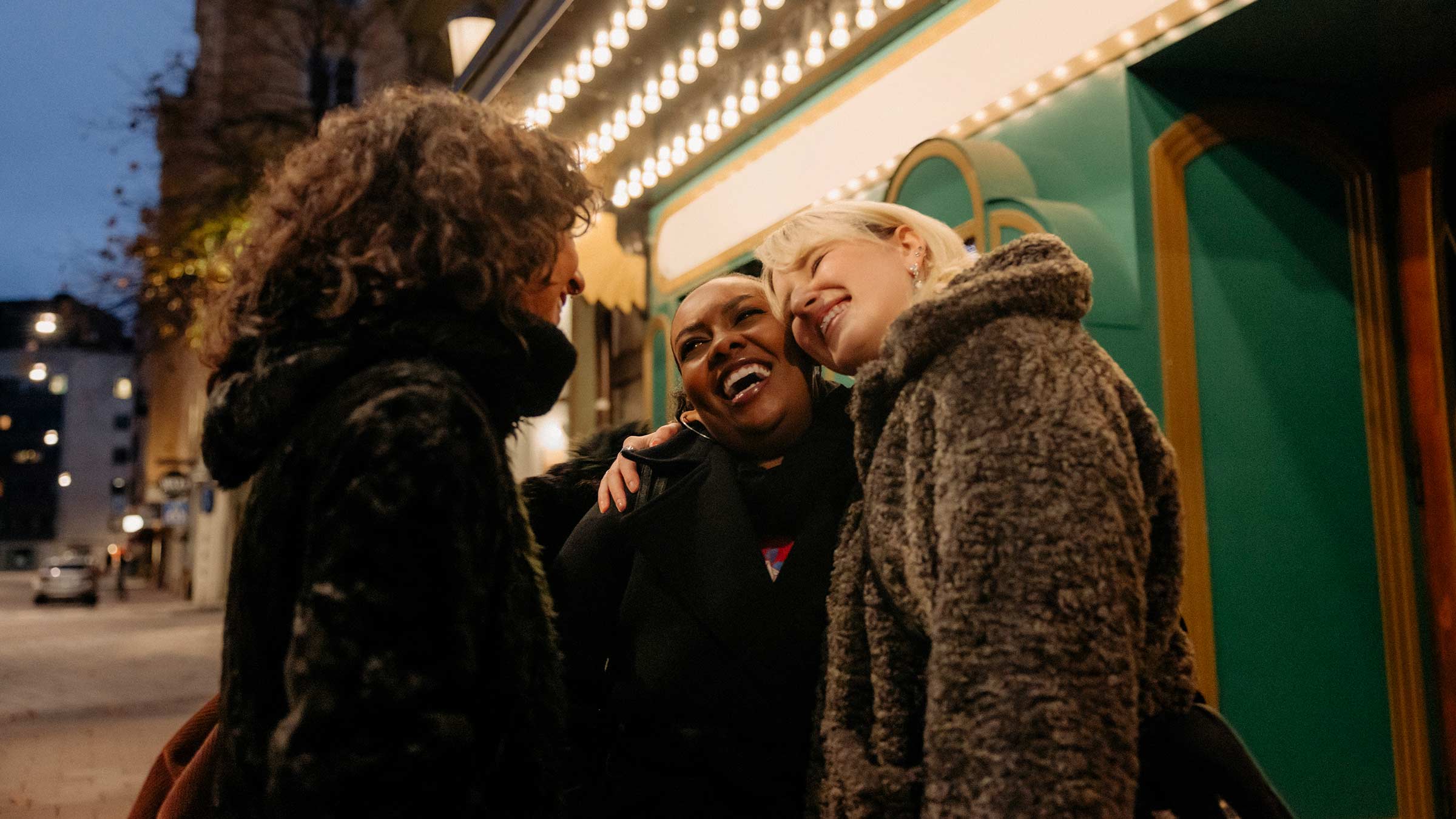
Build your community. Humans are social creatures. We need others to celebrate with during the good times and to lean on when things get tough. Take time to create and nurture a support network that encompasses people from all facets of your life. Family, friends, colleagues, role models, mentors — your relationships with these individuals will positively impact your health and well-being across your lifetime.
— Carol R. Bradford, MD, MS, dean of The Ohio State University College of Medicine and vice president for Health Sciences at The Ohio State University Wexner Medical Center
Take a break from work to see family, play games with your kids, catch up with friends, go see that concert with your partner in the middle of the week, etc. The work will always be there — your family and friends sustain you!
— Kamilah Dixon, MD, an obstetrician/gynecologist at The Ohio State University Wexner Medical Center, an associate professor of obstetrics and gynecology at The Ohio State University College of Medicine, and the medical director of Moms2B
I think my best advice is to become part of some regular social activity that meets at least every week to which you can look forward to during long hours of working and studying. I joined a trivia team that met every week, but there are so many other possibilities, too: book clubs, a weekly soccer game with friends, or even a regular brunch group. The important thing is that it has to be regular and scheduled so that you can look forward to it and prioritize it.
— Christopher Brooks, MD, an allergist/immunologist at The Ohio State University Wexner Medical Center and an assistant professor of otolaryngology at The Ohio State University College of Medicine
Be curious, be interested and always be prepared. Be flexible and open to pivot to Plan B or C. Be open to feedback. Be committed and accountable — going above and beyond is a good rule of thumb. Be respectful and be kind — and be kind to yourself. Cherish friendships and those who mentor, sponsor and advocate for you. Pay it forward when you can.
— Susan Massick, MD, a dermatologist at The Ohio State University Wexner Medical Center and an associate professor at The Ohio State University College of Medicine
As we age, we lose connections with others. Social media is nice, but it doesn't replace in-person interactions. Cultivate strong relationships at different stages in life to be able to have meaningful conversations with close friends.
— Eric Adkins, MD, is an emergency medicine physician at The Ohio State University Wexner Medical Center and a professor of emergency medicine at The Ohio State University College of Medicine
Prioritize exercise and physical flexibility
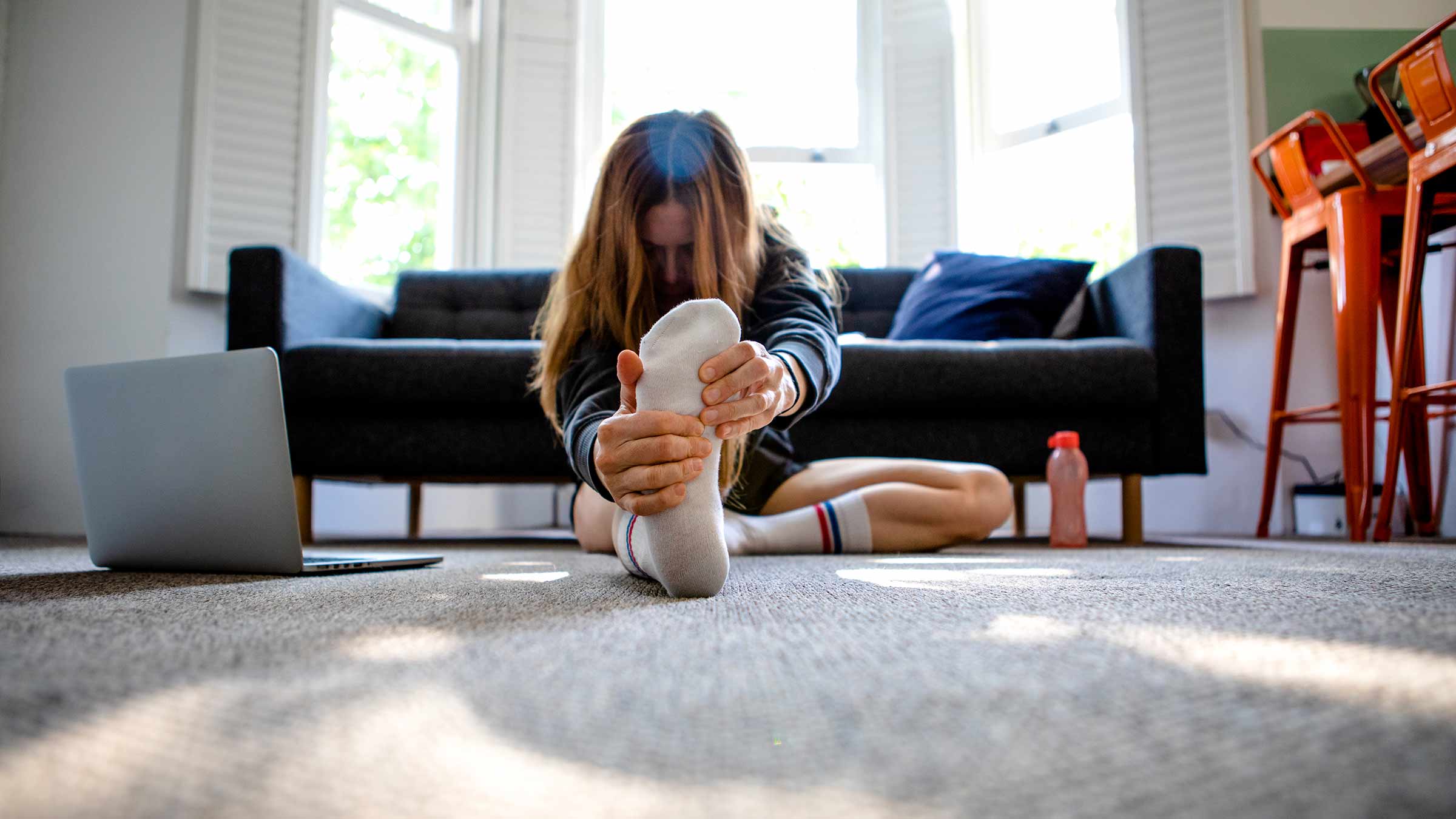
You only have one body; take care of it. Maintain a regular habit of physical exercise.
— Douglas Scharre, MD, director of the Division of Cognitive and Memory Disorders at The Ohio State University Wexner Medical Center and professor of Clinical Neurology and Psychiatry at The Ohio State University College of Medicine
Despite ever-increasing demands on time (and unexpected, life-altering events like a pandemic), making the effort to cultivate friendships and stay physically active will be critical to sustaining mental clarity and wellness in the best and worst of times.
— Ariane Park, MD, MPH, a researcher and associate professor in the Department of Neurology at The Ohio State University College of Medicine
Stretch every day.
— Tanya Gure, MD, a physician in Internal Medicine and Geriatric Medicine at The Ohio State University Wexner Medical Center and a professor of internal medicine at The Ohio State University College of Medicine
Exercise regularly. This is not only important for weight control; it helps with skeletal and mental health. It also stimulates metabolism and energy.
— Binnaz Leblebicioglu, DDS, MS, PhD, a dentist, professor and interim chair of the Division of Periodontology at The Ohio State University College of Dentistry
Find some type of regular activity. All my life, I've been active in sports and regular exercise and activity. It is one of those things that has contributed to a healthy life for myself. I think it helps us look and feel younger. I try to teach my kids about the benefits of regular activity and getting in habits of being active instead of sitting around or staying inside.
— Eric Adkins, MD, an emergency medicine physician at The Ohio State University Wexner Medical Center and a professor of emergency medicine at The Ohio State University College of Medicine
Make including exercise a non-negotiable part of the routine.
— Angela Blackstone, RD, LDN, is a registered dietitian at The Ohio State University Wexner Medical Center
Make exercise part of your routine early on. It doesn’t get easier as your family and career grows! Taking the time to create the habit now will pay dividends later on.
— Preston Stoller, PT, a physical therapist at The Ohio State University Wexner Medical Center
Stretch regularly and maintain a strong core to keep your spine healthy and happy. When lifting heavy weights, good form is of the utmost importance.
— Andrew Grossbach, MD, a neurosurgeon at The Ohio State University Wexner Medical Center and an assistant professor of neurological surgery at The Ohio State University College of Medicine
Eating healthy and exercise is beneficial in any quantity, even if you can't quite meet the guideline recommendations.
— Monica Kraft, MD, an allergist/immunologist at The Ohio State University Wexner Medical Center and an assistant professor of otolaryngology at The Ohio State University College of Medicine
I used to work out regularly in my younger work years, including mountain biking. But it wasn’t really structured, and it was easy to get sidetracked and miss workouts. Then about seven years ago, a friend introduced me to ultra-endurance mountain bike racing, with races ranging from 100 km to 100 miles. Since that time, I have competed in several of these races. Training for these races requires a very regimented training schedule as well as a regimented nutritional program. As a result, my physical health has dramatically improved including my cardiovascular health and my lipid profiles, which completely flipped for the better. In addition, my mental health has significantly improved, with me having much more energy, being much more productive and having much more positive approach to all aspects of my life. So, I would encourage my young self to find recreational activities such as this and set goals for myself.
— Grant Jones, MD, an orthopedic surgeon in Sports Medicine at The Ohio State University Wexner Medical Center and a professor of Orthopaedics at The Ohio State University College of Medicine
Don’t put off nutrition for tomorrow

Don’t letting eating become a way to relax. Eating should be about nutrition, not about stress relief or a way to fend off boredom. Find healthier means of relaxing like producing art or walking.
— Jeffrey Walline, OD, PhD, an optometrist and associate dean for Research at The Ohio State University College of Optometry
Candies, chocolate, cookies were the source of energy before taking big exams when I was growing up. The common belief was that this type of snack would “make your brain work better” while studying. It is not only bad for the brain but also bad for oral/dental health. I managed to become a periodontist with several of my teeth having some type of restoration on them.
— Binnaz Leblebicioglu, DDS, MS, PhD, a dentist, professor and interim chair of the Division of Periodontology at The Ohio State University College of Dentistry
Be aware of your diet. Be careful to avoid foods that are too sugary. I'm still guilty of loving sweet treats. They can still be OK, but try for moderation of sugar intake.
— Eric Adkins, MD, an emergency medicine physician at The Ohio State University Wexner Medical Center and a professor of emergency medicine at The Ohio State University College of Medicine
I would tell myself: The decisions you have made to adopt a plant-based diet are correct.
— Leon McDougle, MD, MPH, chief diversity officer at The Ohio State University Wexner Medical Center, and associate dean for Diversity and Inclusion, director of the MEDPATH Premedical Postbaccalaureate Program and professor of family medicine at The Ohio State University College of Medicine
Drink enough water! It took me a long time to realize when I have my overnight shifts, it is 10 times better to be well-hydrated, as I ended up not relying on candy bars and hot chocolate to keep me alert. I would also feel so much better the next day when I did a good job with drinking enough water! Additionally, having a really fun water bottle helps me want to drink more water (who wouldn’t want to drink water from a sparkly teal ombre cup?)
— Kamilah Dixon, MD, an obstetrician/gynecologist at The Ohio State University Wexner Medical Center, an associate professor of obstetrics and gynecology at The Ohio State University College of Medicine, and the medical director of Moms2B
Sleep!
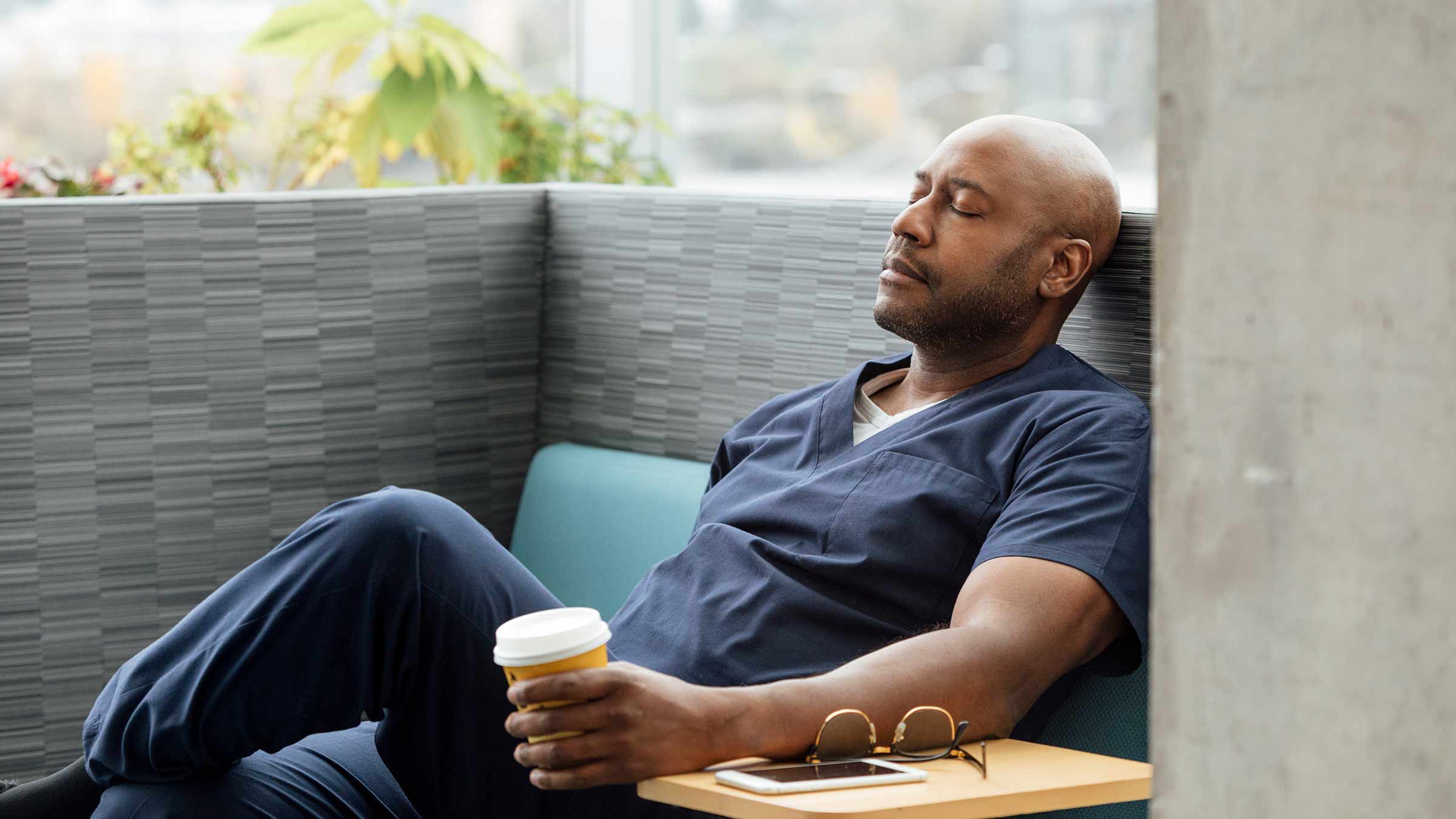
Sleep is restorative and necessary — and not always replaceable with an extra cup of coffee.
— Monica Kraft, MD, an allergist/immunologist at The Ohio State University Wexner Medical Center and an assistant professor of otolaryngology at The Ohio State University College of Medicine
I would tell my younger self how much better life is when you prioritize adequate sleep. The benefits of sleep are immeasurable. It can reduce illness, boost mood and alleviate anxiety, improve relationships and enhance concentration and productivity. Whenever you can, make time for an adequate night of sleep or strategic naps. The benefits of sleep are so important for your happiness and overall health.
— Jillian Gustin, MD, director of Palliative Medicine at The Ohio State University Comprehensive Cancer Center – James Cancer Hospital and Solove Research Institute and an associate professor of palliative medicine at The Ohio State University College of Medicine
Don’t underestimate the importance of quality sleep. Personal and professional demands often require irregular and inadequate sleep patterns. Sometimes this cannot be avoided, but it is imperative to optimize your sleep periods when you are able to do so. The positive and beneficial impacts related to good sleep routinely outweigh the small gains achieved through overextending oneself at the expense of good sleep.
— Daniel Bachmann, MD, an emergency medicine physician at The Ohio State University Wexner Medical Center and a professor of emergency medicine at The Ohio State University College of Medicine
Learning to manage sleep is essential. We all have moments when we work or play harder than usual that forces us to get less sleep. It's important to understand how to recognize and manage fatigue and sleep deprivation. It is more important to establish a strong sleep routine to ensure optimal performance in whatever you do each day. If I ever have to choose sleep vs. exercise, I choose a less aggressive exercise plan for the day and then try to go to sleep earlier.
— Eric Adkins, MD, an emergency medicine physician at The Ohio State University Wexner Medical Center and a professor of emergency medicine at The Ohio State University College of Medicine
I would tell my younger self to sleep more. And don’t worry, you’re going to end up marrying a terrific woman.
— Shahid Nimjee, MD, PhD, a neurosurgeon and co-director of the Comprehensive Stroke Center at The Ohio State University Wexner Medical Center, and an associate professor of neurological surgery at The Ohio State University College of Medicine
Give back

Continue to volunteer as much as possible. Interacting with and impacting individuals is so important and rewarding. Volunteerism rejuvenates the soul! Always remember to continue to have a contagious, infectious positive attitude toward everything you do in life, because you’ll encourage and motivate yourself and others to become the best versions of themselves.
— Desmond Shipp, MD, MSBS, a dermatologist at The Ohio State University Wexner Medical Center and an associate professor and the director of Cosmetic Dermatology in the Department of Dermatology at The Ohio State University College of Medicine
Protect your skin and teeth
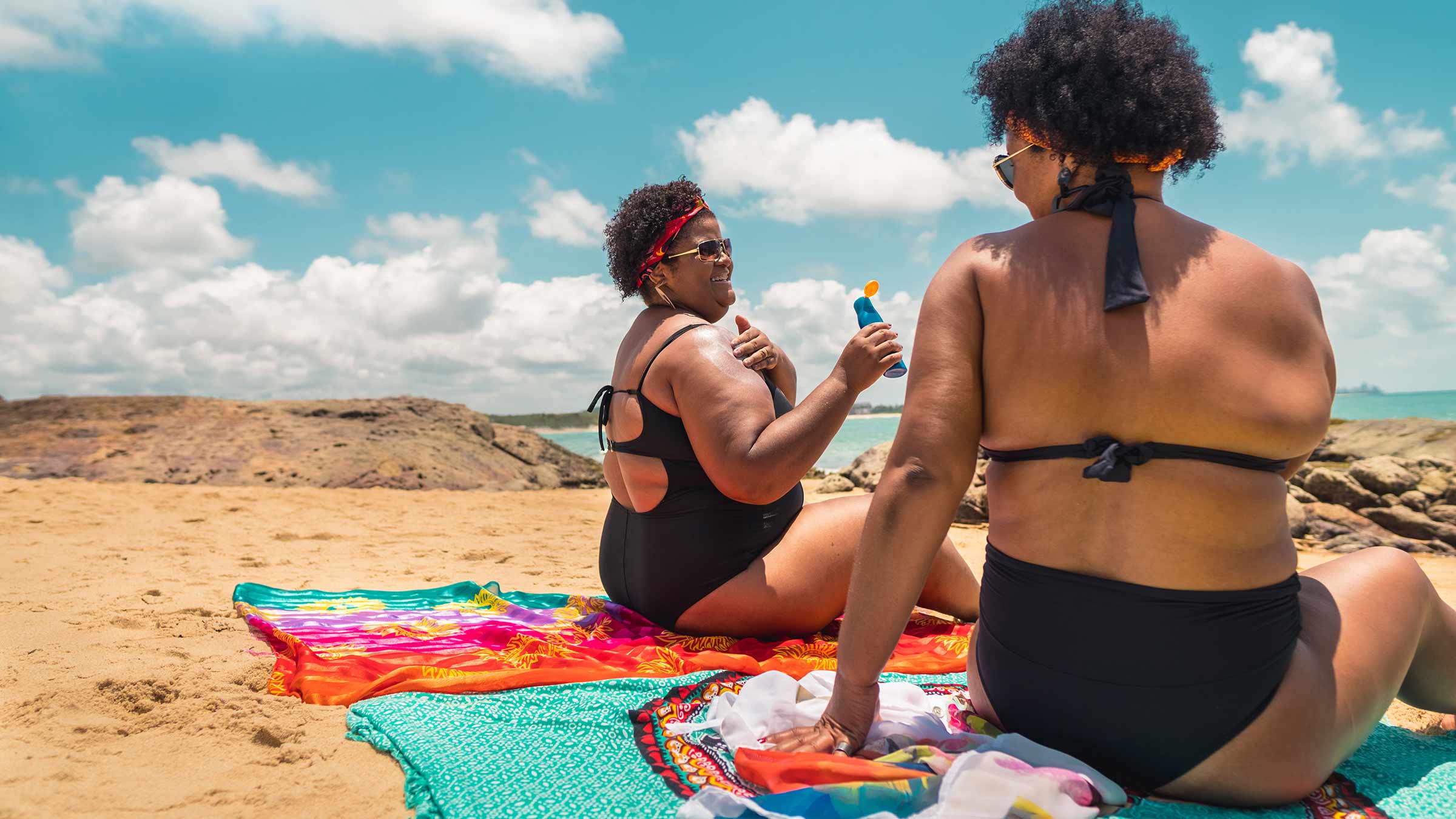
There were a lot of times I probably skipped sunscreen as a younger person. As I've aged, I've made sure to be more vigilant about using it to protect my skin.
— Eric Adkins, MD, an emergency medicine physician at The Ohio State University Wexner Medical Center and a professor of emergency medicine at The Ohio State University College of Medicine
People of color do get skin cancers, and often when diagnosed, the cancer is much more aggressive because it’s often found in later stages. To help change this outcome, I’d encourage everyone to use a physical blocker (sunscreen). Start with young kids, teenagers, adults and elderly. It’s never too late to begin to protect yourself.
— Desmond Shipp, MD, MSBS, a dermatologist at The Ohio State University Wexner Medical Center and an associate professor and the director of Cosmetic Dermatology in the Department of Dermatology at The Ohio State University College of Medicine
Protect your skin from the sun. Sun protection was only for summertime and only for the beach site when I was growing up. I learned to regularly apply skin protection when I was in college.
Going to a dentist and having regular check-ups for oral/dental care was a luxurious thing when I was growing up (still true in most of the world). People used to visit their dentist only when they had toothache and/or aesthetic concerns. I learned that an oral cavity is a “mirror” for systemic health during my dental education, and this link made me become a periodontist. Today, we know that we cannot control diabetes without taking care of inflamed gums. Obesity and metabolic syndrome coexist with periodontal diseases, and periodontal diseases, as a chronic inflammatory challenge for the body, may induce adverse pregnancy outcomes, cardiovascular events and may be linked to other forms of diseases such as Alzheimer’s. Similarly, medications taken to control systemic health issues, such as high blood pressure, cholesterol and/or depression, may have side effects directly causing periodontal and/or dental problems. And various autoimmune diseases affecting the skin and mucosa may have their first signs within the oral cavity.
Brushing is not enough — floss. Preventive pediatric dentistry was a new thing when I was growing up. I started flossing when I became a dental student. Brushing works only on some parts of the tooth surfaces and tissue breakdown (tooth and/or surrounding soft/hard tissues) starts between teeth, perfectly hidden from toothbrushes. Thanks to science, we also have several alternatives for interdental cleaning since the majority of the population finds flossing very difficult.
— Binnaz Leblebicioglu, DDS, MS, PhD, a dentist, professor and interim chair of the Division of Periodontology at The Ohio State University College of Dentistry

When you give to The Ohio State University Wexner Medical Center, you’re helping improve lives
We’re committed to making advancements in research, education and patient care that will have an impact throughout Ohio and the world.
Ways to Give



